September 6, 2022 | Tuesday
*The writer and activist Ervina Halili, in 2013, on her own initiative and on a voluntary basis, started the project for the preservation and digitization of the letters published during the years 1945 – 1999 by the “Rilindja” printing house. In 2021, after the research and collection of numerous materials, interviews with writers and former workers of Rilindja, she manages to shape and launch the digital platform Rilindja Archive. * The project was launched by the Heritage Space platform, supported by the European Union in Kosovo. But how did it all start and what is the purpose of the digital platform Archive Rilindja, Ervina herself confesses in an article for the Europe House!
“Rilindja – a resurrected ghost”
Writes: Ervina Halili – Writer
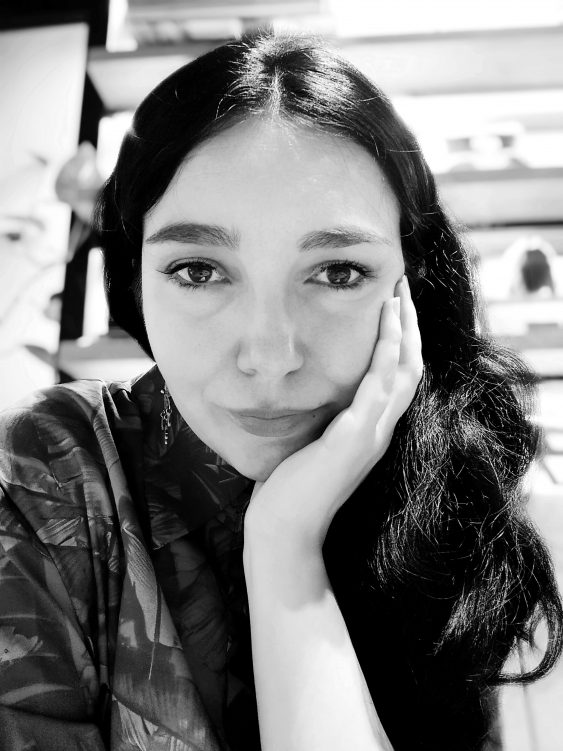
Everything started unexpectedly, just as beautiful things start.
I was a literature student at the time, and I had already published my first book. I was still very curious and fascinated with literary currents and the writing process itself. I was researching how those currents have affected literature in Kosovo. I suddenly found that the literature of Kosovo has had poets who tried to experiment and follow literary currents, as well as very authentic poets who could not fit into any literary trend.
Pristina used to be simpler, it had more taste. I always saw on the way to college a man about my grandfather’s age, tall, thin, carrying newspapers under his arm, a half-beret hat, and a waistcoat with pockets that were always overflowing with papers. That beautiful time has passed for Pristina, you don’t see people like that on the street anymore.
Whenever I passed by the philological university, we greeted each other as if we were friends. I thought he was some retired old man who had nothing to do with his day. One day, while I was passing by on the same street with a fellow student, the man with the beret passed by us again and greeted me, while my colleague asked me:
– You know who this is?
– No, but we greet each-other, he must a some painter.
– You had his book in your hand yesterday.
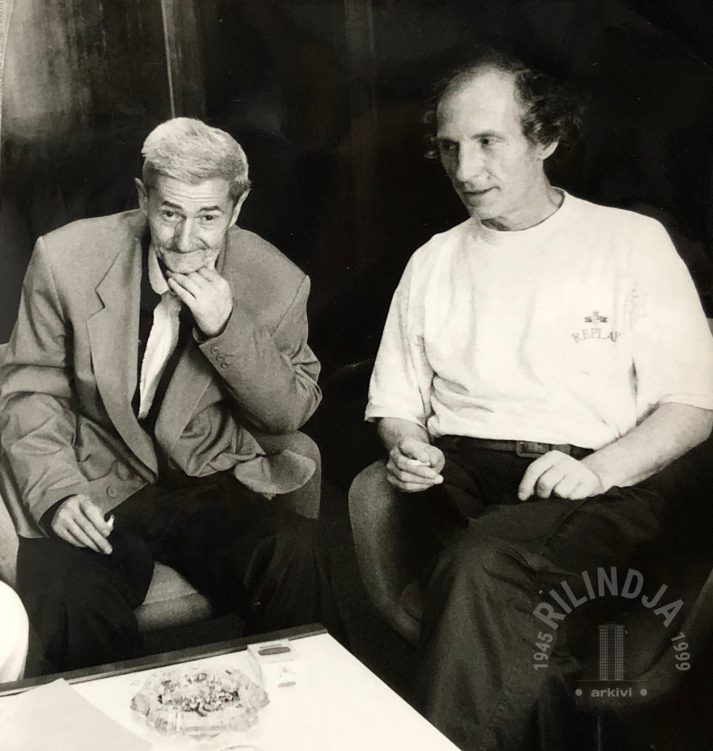
I was very confused. I did not know that the author of the book was alive, I felt ashamed. Everyone in the faculty talked about these people as ancient, and the book was published in the 60s by Rilindja, in some dead society.
I felt remorse, that the living wandered like phantoms, these devotees of letters, walk through the city with withered feeling, unframed. Surely no one asks about them, I thought. In my naive mind, it was not easy to be a writer, and the world had a tremendous respect for their writers. But now I realize that the world has more respect for dead writers. We must once again build the myth around them to respect the myth and not the people.
I’ll make him a friend, I told myself, the next time I meet him, I’ll find an excuse to give him my book, just to get to know him.
And that’s what I did, I offered him my book and he told me, tomorrow when you go to EDI`s (an old sweets shop) I will leave my book there.
The next day I went to Edi’s, the poet was sitting alone with his waistcoat full pockets.
I sat down without being told twice, and began to ask him about all the circumstances in which literature was once written. I don’t know if he was very interested in my curiosity, but he was very eager to talk about the time when he was frantically producing texts, and among other things, he had also been the Culture Editor of Rilindja newspaper.
On other days, I walked over to Edi`s on purpouse and even when I found them in a group, discussing this and that article, I just sat down, as if I were invited. I was amazed at how much knowledge they had about world literature, and what analytical feelings they had about poetry. Their conversations aroused more curiosity than boring lectures in the faculty. It is enough to ask a simple question from an inquisitive person who has just started to understand things, and all kinds of stories and sensations erupted. Their lessons were alive, they had soul.
The stories were so fascinating that I started collecting all the Rilindja’s books they talked about. I was also looking for books about the Rilindja, since there was a very filmic history of how it all started, but I couldn’t find anything. One day I decided to go see the facility for myself, and the whole dream that Eddie’s writing team had given me came crashing down on my head like the sky.
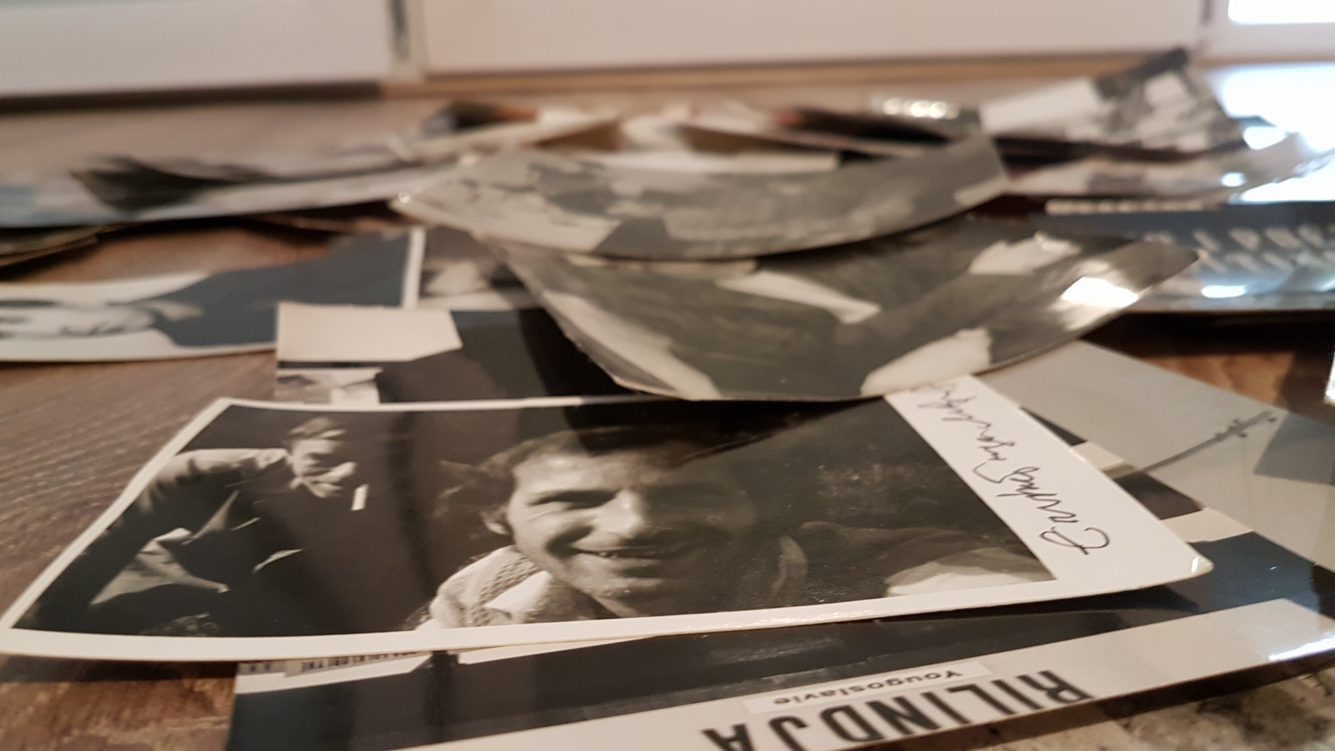
I had forgotten that they talked about a past and described it so vividly. The facility was inaccessible in terms of printing press and machines, while the object of the palace, which for me was completely alive from their visual narratives, was full of offices paved with shining tiles and women in high heels knocking the floor without knowing what they were walking on and men in new fingo suits.
I started making a list, first of people I could meet, who would give me more information, and gradually I started to understand more and if I describe it here, you should publish a book for me.
The people of Edi’s group started to run away from this life and the rich-pocketed poet felt more and more lonely, more tired. I knew that at least it made him happy when he remembered old friends but also the time when he worked at Rilindja and published his books. One day together, we approached the entrance of the printing house, and the guard who was standing at the entrance did not let us in because we did not have a permit that had to be obtained at the PAK.
I wrote and worked here – said the poet with his full pockets.
The worker did not know him, and felt full authority to make him leave.
The pocket-full writer was very sad and told me:
– at least I’m going to Elida, they don’t tell me to leave there, I want to stay with my friends. We are getting apart and we`ll see each other another time.
I was worried to see his lip shaking in sadness. I decided to walk a few meters away from him. He entered Elida.
Elida was empty.
He was very sad. I wanted him not to see me. I had a camera with me that I had taken to film the interior of the Rilindja. I took a picture through the windows of Elida and left with a broken heart. It was year 2012.
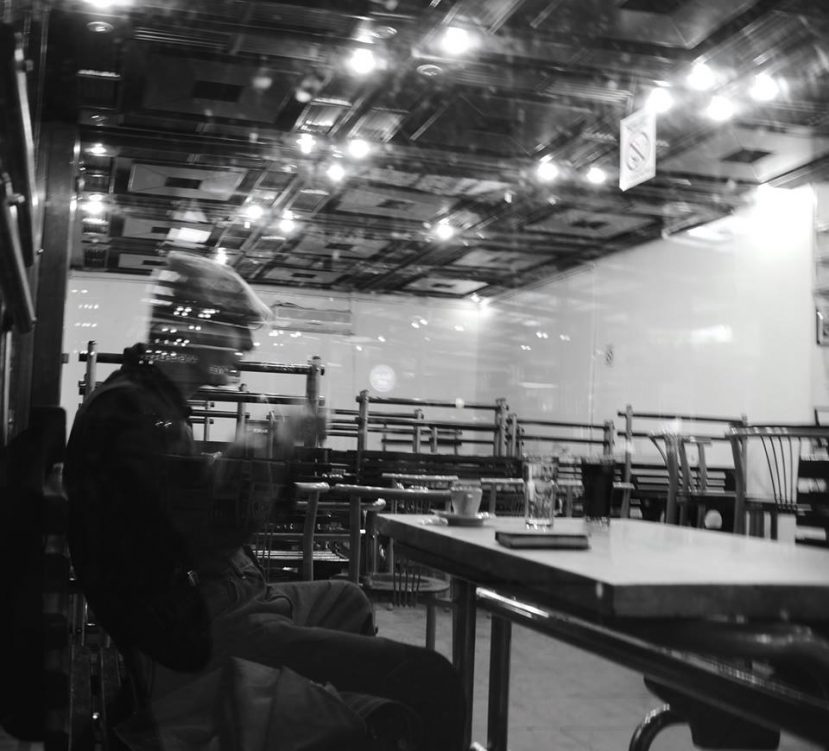
I couldn’t understand how such a thing could happen, to a man who had left behind so many books, and I couldn’t understand how such a thing could happen, to an institution that had kept so many stories inside, which could build a complete account of how intellectual life has been organized in Kosovo since the Second World War.
The curiosity of what the printing press looked like inside grew more and more every day, as well as the curiosity to see the materials inside, such as the photographs, the manuscripts that the poet told me about, the shelves of workers’ clothes filled with posters, etc.
I decided first to collect the materials of the pocket-full writer, then to contact the family members of those who were no longer living, to see if they might have anything they had saved from their father’s or mother’s work in Rilindja.
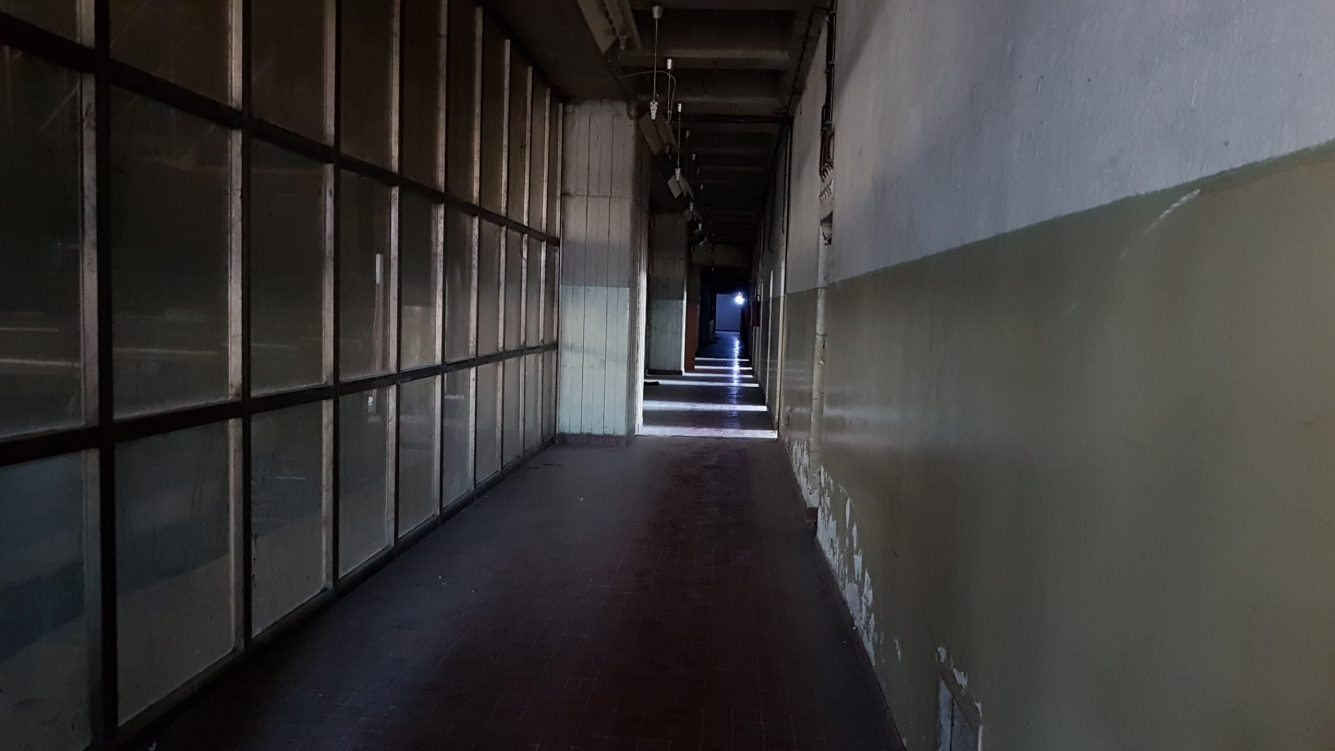
You know, most of the Yugoslav economy was based on social enterprises which had an organization between the capitalist system and the Soviet central planning system. This organization was called self-management, where the workers were co-shareholders of the enterprise, that is, they used the assets and profited from the enterprise’s products, but its ownership belonged to the state itself.
After the war in Kosovo, everything that belonged to this system and was built in the time of Yugoslavia, would be managed by UNMIK, which, based on resolution 1244, legitimized the opening of the KTA (Kosovo Trust Agency) that later was transformed into KPA (Kosovar Privatization Agency) in order to put KPA in charge of the management, privatization, sale and liquidation of these enterprises. And so it happened. Gradually, KPA has put the assets of the Rilindja company up for sale, and every time I saw them I felt despair.
In order to shortcut the story..
Together with Cultural Heritage Without Borders, we thought we could use the materials I had already collected over the years to make this issue more public, also considering that nothing from the Rilindja`s archive, unlike what I once imagined, was left alive.It was all lost, left in the damp, sold, liquidated.
When the virtual archive and the documentary film were launched, the hall was full, and after the actions were made public, people began to offer contribution.
At least, today, when we talk about the Rilindja, we don’t just see an empty object, or a dead memory, about which future generations will have no idea, but we have our minds filled with what it really was and how a space could be organized in the future in her memory and honor, but also in honor of all of us who were part of this society and ate from its fruits to grow in imagination and intellect. At least Rilindja has been re-actualized as a theme and is alive, although my friend, with full pockets, left this life, a month after the launch of the archive, with the desire that he, his friends and the entire contribution of this society will keep the writing in the Albanian language alive.